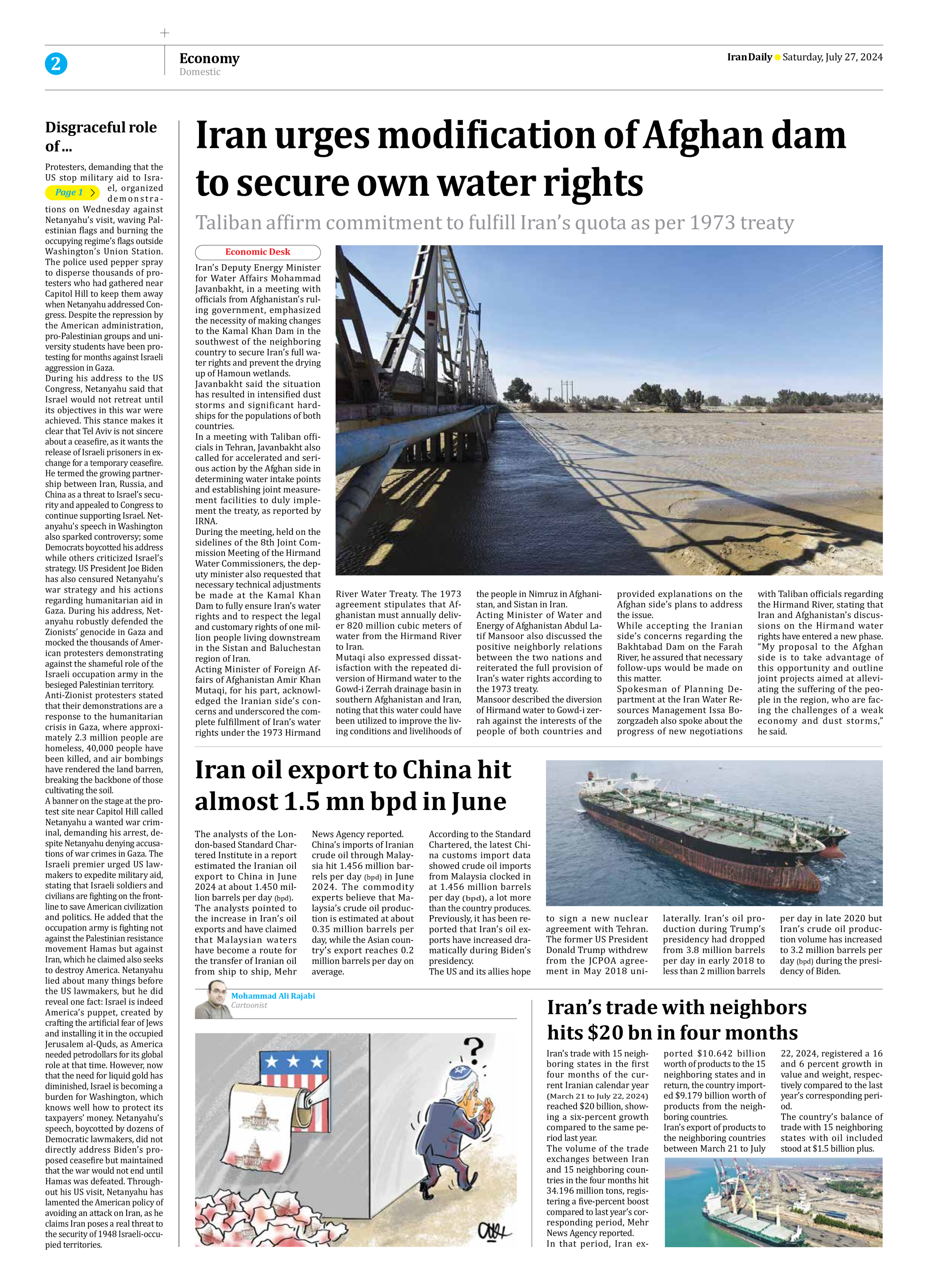
Copy in clipboard...
Iran urges modification of Afghan dam to secure own water rights
Taliban affirm commitment to fulfill Iran’s quota as per 1973 treaty
Javanbakht said the situation has resulted in intensified dust storms and significant hardships for the populations of both countries.
In a meeting with Taliban officials in Tehran, Javanbakht also called for accelerated and serious action by the Afghan side in determining water intake points and establishing joint measurement facilities to duly implement the treaty, as reported by IRNA.
During the meeting, held on the sidelines of the 8th Joint Commission Meeting of the Hirmand Water Commissioners, the deputy minister also requested that necessary technical adjustments be made at the Kamal Khan Dam to fully ensure Iran’s water rights and to respect the legal and customary rights of one million people living downstream in the Sistan and Baluchestan region of Iran.
Acting Minister of Foreign Affairs of Afghanistan Amir Khan Mutaqi, for his part, acknowledged the Iranian side’s concerns and underscored the complete fulfillment of Iran’s water rights under the 1973 Hirmand River Water Treaty. The 1973 agreement stipulates that Afghanistan must annually deliver 820 million cubic meters of water from the Hirmand River to Iran.
Mutaqi also expressed dissatisfaction with the repeated diversion of Hirmand water to the Gowd-i Zerrah drainage basin in southern Afghanistan and Iran, noting that this water could have been utilized to improve the living conditions and livelihoods of the people in Nimruz in Afghanistan, and Sistan in Iran.
Acting Minister of Water and Energy of Afghanistan Abdul Latif Mansoor also discussed the positive neighborly relations between the two nations and reiterated the full provision of Iran’s water rights according to the 1973 treaty.
Mansoor described the diversion of Hirmand water to Gowd-i zerrah against the interests of the people of both countries and provided explanations on the Afghan side’s plans to address the issue.
While accepting the Iranian side’s concerns regarding the Bakhtabad Dam on the Farah River, he assured that necessary follow-ups would be made on this matter.
Spokesman of Planning Department at the Iran Water Resources Management Issa Bozorgzadeh also spoke about the progress of new negotiations with Taliban officials regarding the Hirmand River, stating that Iran and Afghanistan’s discussions on the Hirmand water rights have entered a new phase.
“My proposal to the Afghan side is to take advantage of this opportunity and outline joint projects aimed at alleviating the suffering of the people in the region, who are facing the challenges of a weak economy and dust storms,”
he said.







